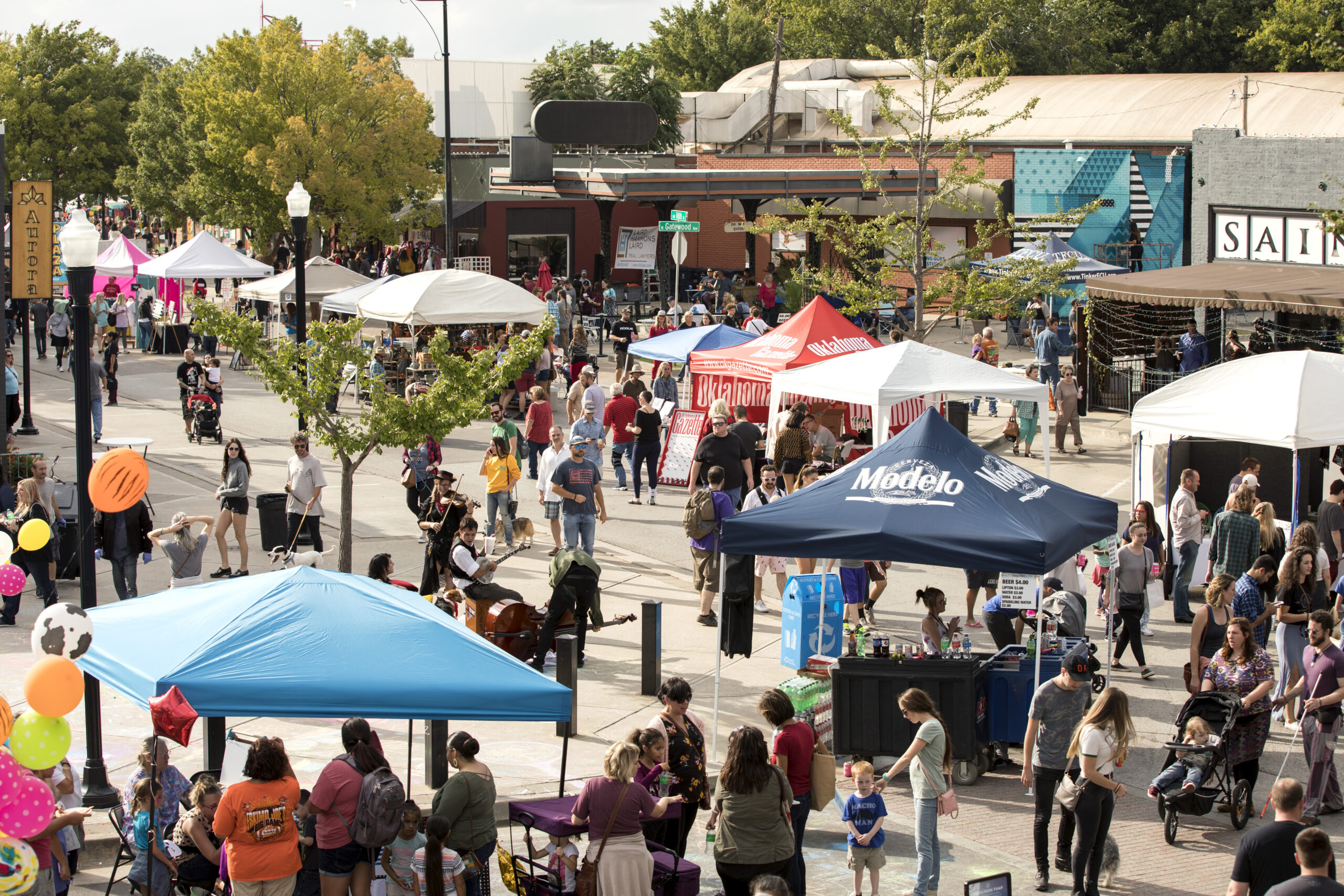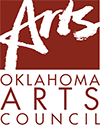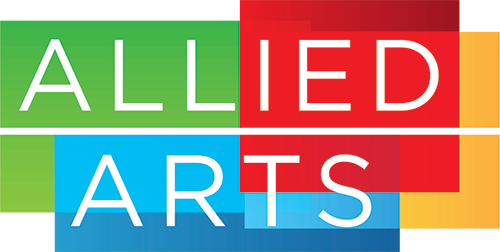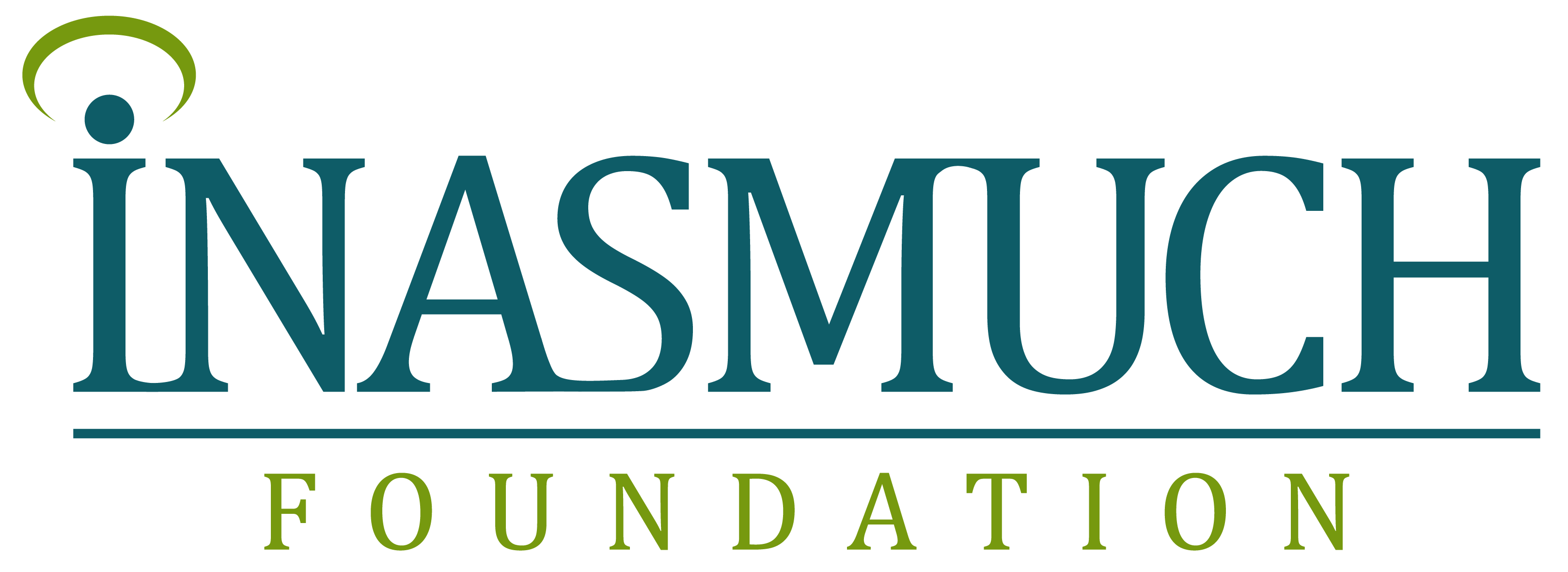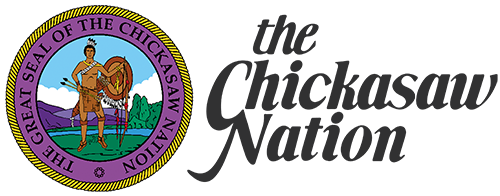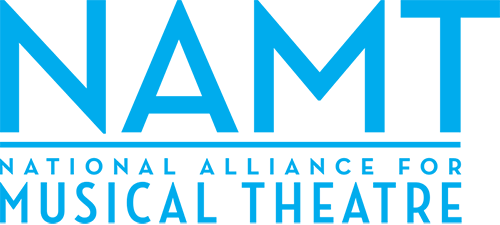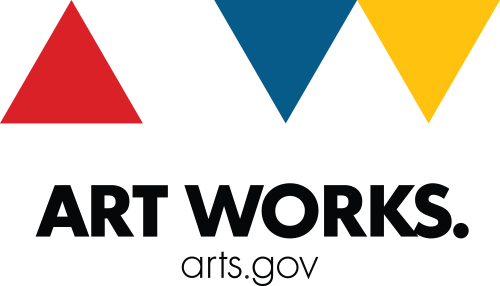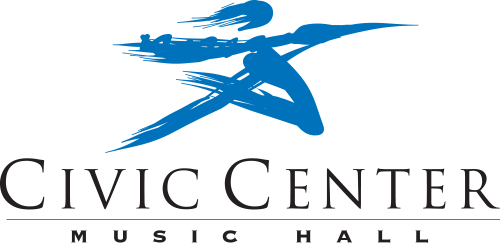By RODNEY BRAZIL
Lyric Theatre Blog Writer
Placemaking is the idea that people must take a hands-on approach to develop our public spaces in a way that serves the entire community. Neighborhoods, cities, suburbs and whole regions benefit from placemaking, which calls for us all to come together and imagine the true potential of our shared public spaces.
Oklahoma City has reaped enormous benefits over the last two decades from the placemaking efforts of city officials, non-profit organizations and real estate developers. Automobile Alley, Capitol Hill and the Plaza District are examples of how placemaking turns stretches of nearly-abandoned property into cultural hubs. While placemaking involves many practices, ultimately it’s about curating the right experiences.
Taking a grassroots approach to placemaking is often more successful than projects centered around new construction. Revitalizing an existing neighborhood gives people pride in their current community, generates higher levels of social involvement, has a more sustainable environmental impact and leads to positive financial returns.
Oklahoma City’s MAPS project, which began in 1993, has invested more than $1.8 billion into our community over the last 25 years. The City of OKC has also made multi-million dollar investments in specific neighborhoods such as the Plaza District. But placemaking is much more that government dollars to buy street lamps and park benches. Placemaking requires collaboration from the entire community.
Lyric Theatre of Oklahoma played a significant role in making the Plaza District what it is today. Nick Demos, the former Artistic Director who spearheaded the development of the Lyric’s Plaza Theatre, understood the fact that artists are often a driving force. “Lyric believed that if it rooted itself in the Plaza District that other businesses would follow and, together, we would revitalize what once was a thriving neighborhood. We dreamed of a neighborhood where artists and patrons would convene in restaurants, shops and galleries before and after attending the theatre. And that is exactly what happened!” Demos explained.
While a few Plaza businesses were in operation prior to Lyric’s arrival to the neighborhood, most opened after Lyric. Even area staples such as Dig It!, Saints and Empire Slice House hadn’t set up shop at the time. It was the presence of a respected creative institution that made doing business in the Plaza District more exciting—more feasible. As the area grows, Lyric often partners with area businesses to show neighborly support and create a sense of community for artists and patrons alike.
Steve Mason of Mason Realty Investors understands first-hand the power of placemaking. In addition to his prominence in Oklahoma City’s business sector, Mason is a long-time supporter of the arts and serves as chairman of Allied Arts. Mason and Aimee Ahpeatone have redeveloped numerous OKC properties, such as 1200 Penn Shopping Center, Mixtape at the Womb, along with promising new projects like The Yale Theatre in Capitol Hill and the historic Classen Inn and a range of properties in Automobile Alley and the Plaza District.
The slogan for Mason Realty Investors is “Real Estate for Real People.” They firmly believe that building a community isn’t just about buildings and businesses. It takes vision and genuine leadership. It takes the know-how not only to conceptualize the possibilities but also to see the projects through to completion. To do this, you must know your market and the people within it.
Mason sees parallels between small communities and large sovereign nations. “I grew up in the Cold War and learned about spheres of influence. When you look at an intersection like 10th and Broadway, you see all these different players. And, then if you draw circles to determine the spheres of influence, it explains why this area is doing well. Because you have diverse people exerting their influence in several neighborhoods that converge on that corner.”
When you look at the list of businesses that operate in Mason’s properties, you understand just how dedicated the Ahpeatone Mason team is to placemaking. Tenants include DNA Galleries, Pie Junkie, Mexican Radio, Dig It! Boutique, YogaLab, Folk.Life, Blue Mountain Health, Well Beauty Studio, Solare, The Pritchard Wine Bar, Bad Granny’s Bazaar, Scorecards, Thrive Mama Collective, Out on a Limb and OKC Improv.
Ahpeatone, Mason and their team work hard to create a portfolio of businesses that work together to make a neighborhood self-sustaining and worthwhile. “If we let Walgreens come in, we could charge them triple the rent, but it would hurt this district. It would take away the ambiance that everyone likes,” Mason explained.
Often, theatres and other independent art collectives will lease inexpensive real estate in a struggling area. Then, as the neighborhood begins to thrive, landlords will eject the non-profit artists in favor of for-profit businesses that can pay higher monthly rates. Once the artists are absent, however, those neighborhoods tend to decline.
Mason explains why this pattern is detrimental to placemaking: “As humans, if we’re homeless, it disrupts other parts of our life. If you run a non-profit, and your organization is always one-step from homeless, it’s harder to put out a quality product. If Lyric Theatre had to move every two years, to a new part of town, it would make success exponentially more difficult.”
Supporting artistic institutions in the community is essential to maintaining culture and appeal. This concept isn’t new. In 1938, Winston Churchill said, in a speech that, “The arts are essential to any complete national life. The State owes it to itself to sustain and encourage them.” However, state and federal dollars to support the arts in today’s world are in short supply. That’s why Mason maintains that private business and individuals must step in to fulfill this gap in funding.
Since the financial crisis of 2008, public dollars allocated to the arts have fallen, but collaborations between local governments and private investors are on the rise. Marc Spiegler, global director of Art Basel, told the New York Times that “Cities want to be put on the map as a cultural destination. The creative class is significant in attracting talent from other sectors, such as finance and software development.”
Here in Oklahoma City, projects like the Plaza Walls and Factory Obscura’s Mixtape, supported by Ahpeatone, Mason and their team, are a prime example of a public attraction made possible by private investment.
As for Lyric, having a stable home in a thriving neighborhood like the Plaza District has allowed for an enormous expansion in the theatre’s community impact. Lyric’s Thelma Gaylord Academy and Musical Interactive school program give thousands of students access to performing arts education every year. Lyric has also been able to present unconventional material that fits better in a neighborhood like the Plaza District.
The experiences people can enjoy at Lyric’s Plaza Theatre are a natural fit for the area, proving how dedicated Oklahomans can work together to create placemaking success.


